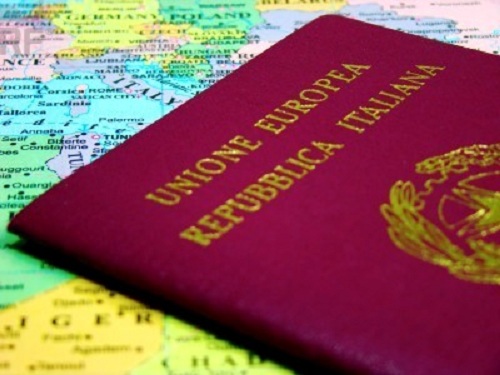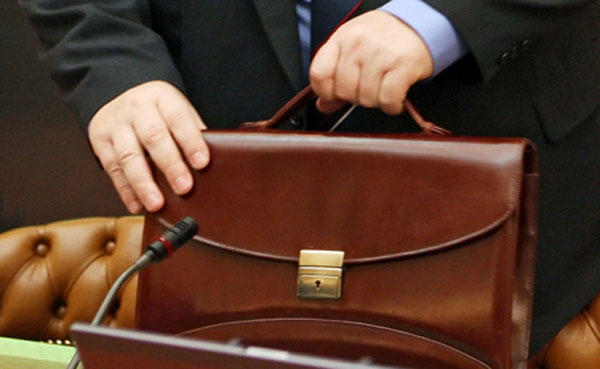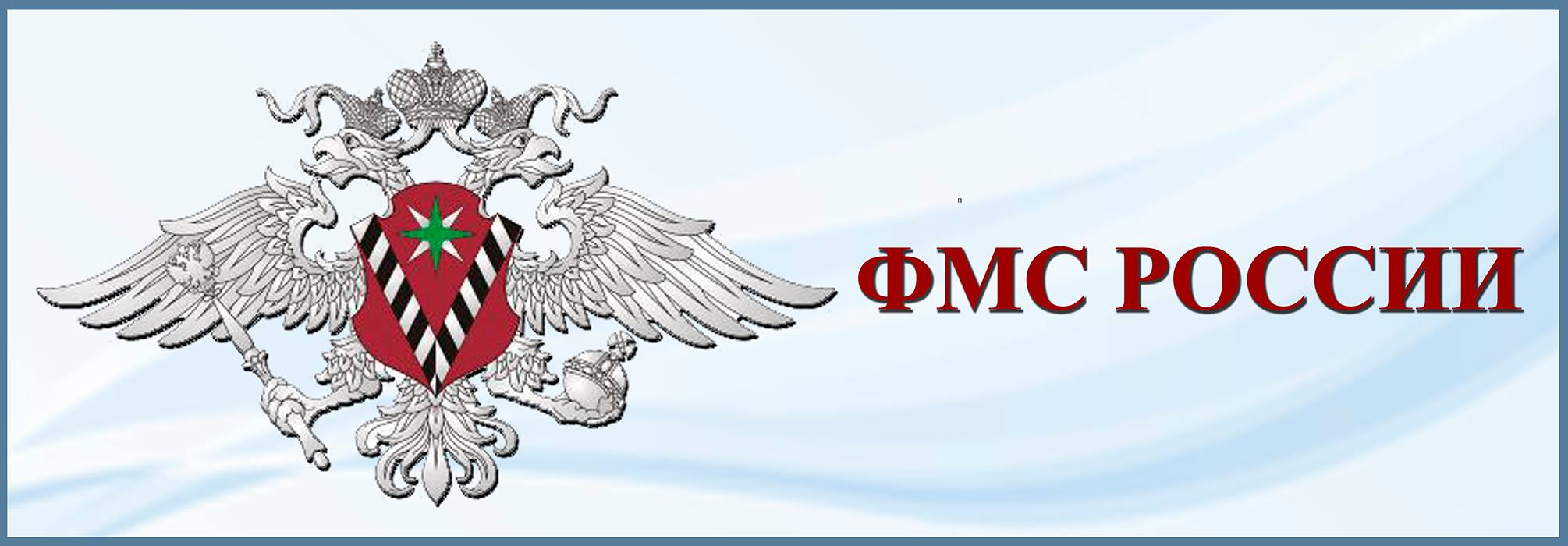Agree, it is tempting to be a citizen of two countries, to travel to visa-free regime, to enjoy protection and rights on the territory of each state, but there are also a lot of issues with obtaining dual citizenship. How will taxes be paid, where should one serve, who will pay social security? That is why officially obtaining two passports is prohibited.
Who is eligible for dual citizenship
A citizen of the Russian Federation can obtain citizenship in such states as Turkmenistan or Tajikistan, while not losing privileges in Russia. Agreements have been concluded with these two countries, so there are no penalties for individuals. Law of the Russian Federation "On dual citizenship” explains that duties and social guarantees arise for a person in the country where he is permanently located.
But even the residents of Turkmenistan will not be able to obtain dual citizenship if they are minors, it is required to live for a certain time in the country. Certain difficulties arise, therefore, the FMS may refuse you, requiring the choice of only one citizenship.
How it happens in practice
If you are a citizen of the Russian Federation, no one will be able to forbid you a second citizenship. This is indicated by the Constitution and other regulations, but Russia does not recognize your second passport. How do resourceful citizens act? They secretly receive a second passport, use its rights at the border, freely travel to the territory of the second country, while applying to consulates only with Russian documents.
Why are there more and more people with dual citizenship? The benefit is obvious, you have the right not to apply for a visa, to move freely, and some people want to find a place in the world for a good life, but they don’t want to renounce Russian citizenship - they suddenly have to return.
Responsibility of citizens
In 2016, a new law on the need to submit a notification of dual citizenship continues to operate on the territory of the Russian Federation. Keep in mind, if you do not do this, you can be held administratively liable - a fine of up to 1000 rubles. But this is not scary, because if you evade, you face a criminal penalty - up to 200 thousand or compulsory work.
Only people who have left for permanent residence in other countries are exempted from liability. If you do not appear in Russia, you will not be fined, and upon arrival you will have to personally write a statement. But in order to punish you, the Russian Federation must obtain reliable information about the second citizenship. International treaties allow this only within the framework of Belarus and Armenia. No agreements were concluded between the Russian Federation and the United States.
Thus, the law prohibits obtaining dual citizenship, although in practice people are not afraid of an impressive fine when obtaining a second passport. The countries of dual citizenship of the Russian Federation provide for a legal procedure, in all other cases it is better to ask for clarifications from the FMS in order to avoid punishment. If citizenship was nevertheless obtained, you should not hide it, write an application upon arrival in Russia, this must be done within a couple of months.
The law establishes an obligation for a citizen to notify of dual citizenship, failure to fulfill such an obligation may provoke prosecution. In our article, we will talk about the procedure for issuing a notification and the rules for submitting it to state bodies. Dual citizenship, according to the norms of the current legislation, is recognized when a citizen of the Russian Federation has the citizenship of another state. obliges citizens of Russia to report the fact of acquiring a new citizenship to the Federal Migration Service of the Russian Federation.
The following can report the presence of dual citizenship to the FMS:
- directly a person who has a second citizenship;
- legal representative of a minor or a person with dual citizenship who has limited legal capacity;
- a citizen who owns a document for the right of permanent residence in a foreign state;
- a person who has a residence permit in another state.
At the same time, from the obligation to provide migration service reports of dual citizenship are exempted by citizens of the Russian Federation who do not reside in Russia on a permanent basis. In addition, the law establishes restrictions on the notification obligation, for example, in relation to certain categories of persons, a different procedure for reporting the presence of a second citizenship is established.
Dual citizenship notice forms
A notification of dual citizenship is issued on a special form, a sample of which is enshrined in the Order of the Federal Migration Service of the Russian Federation of July 28, 2014 No. 450.
In the notification form of dual citizenship for an adult / capable person, the following information is noted:
- the name of the body and its structural subdivision to which the notification will be sent;
- Name of the applicant, date and place of his birth;
- full address of the place of residence or stay;
- passport data - information from Russian passport and an identity document foreign citizen;
- full name of the second citizenship, including the date and basis of its acquisition;
- a list of copies of documents that are attached to the notification.
The dual citizenship notification form for a minor/incapacitated person is contained in Appendix No. 2 to the 450th Order of the FMS of the Russian Federation. The document must be submitted to the authorities by the legal representative of the incapacitated or minor person. The form contains not only data about the child or the incapacitated, but also the full name, date and place of birth, place of residence and details of the applicant's passport.
How to fill out a notice of dual citizenship
The notification form consists of 3 parts, information directly related to the fact of acquiring a second citizenship is indicated on the front and back of the document. In this case, the front side of the notice contains a detachable part.
The notification is filled in by the applicant personally or using technical means, the information is displayed in Russian, some columns can be filled in Latin letters.
Important! When filling out the form, it is not allowed to indicate abbreviations and abbreviations, the presence of strikethroughs or corrections, as well as leaving the fields blank.
The period of notification to the competent authorities about dual citizenship is limited to 60 days, while the period begins to be calculated from the moment the citizen acquires the citizenship of another state.
A citizen of the Russian Federation has the right to submit a notification to the FMS department at the place of residence by personal appeal or by mail - by registered mail with a notification or through a legal representative. If a citizen does not have an official place of residence, he must submit a document at the place of his stay in the Russian Federation or at the place of actual location on the territory of Russia.
Documentation when notifying dual citizenship
When notifying the FMS of having a second citizenship, the applicant must prepare the following package of documents:
- a copy of the passport of a citizen of the Russian Federation;
- a copy of the identity document of the foreigner;
- a copy of the passport of a foreign citizen;
- a copy of a document confirming permanent residence on the territory of the Russian Federation.
Also, the notification document, which is submitted in respect of an incapacitated or minor, shall be accompanied by:
- act on the appointment of a guardian or custodian;
- birth certificate of a child with a second citizenship;
- child proof document Russian citizenship if the notice is for a child under 14, it may be:
- foreign, service or diplomatic passport of the child or his parent;
- birth certificate with a mark made in the document by competent foreign authorities;
- an insert in the document on the registration of the child, made by the competent foreign authorities;
- a mark on the translation into Russian of a document that was drawn up by foreign authorities.
Acceptance of notification from citizens about dual citizenship
The obligation to verify the accuracy of the data recorded in the notification rests with the officials of the migration service who accept the document. Employees need to make sure that the citizen attached to the notification all Required documents. To do this, copies and originals of documents are compared, and the signature of a citizen is also verified.
After accepting the papers, the civil servants fill in the necessary notice items and separate the tear-off sheet of the document, which is transferred to the applicant. The tear-off sheet is a confirmation of the fact that a person has applied to the migration service with a notification.
The slip sheet contains the following information:
- Full name of the person who has the second citizenship;
- passport or residence permit data;
- Full name and position of the FMS officer who accepted the documents;
- personal signature of a civil servant.
If the notification is sent by mail, authorized employees must send a tear-off coupon to the address indicated in the document within 1 business day, the period is calculated from the moment the notification is received from the citizen.
Liability for violation of the obligation to notify dual citizenship
To date, there is a kind of legal liability provided for violators of the obligation to report dual citizenship to the migration authorities. Thus, Article 19.8.3 of the Code of Administrative Offenses of the Russian Federation provides for liability for violating the procedure for filing a notification, which can be expressed in:
- providing incomplete information in the notification;
- late submission of documents;
- providing false information.
These violations are punishable by a fine in the amount of 500 to 1,000 rubles.
Criminal liability for failure to report the acquisition of a second citizenship is provided for in Article 330.2 of the Criminal Code of the Russian Federation. Criminal law provides for an alternative sanction that has two types of punishment:
- fine;
- compulsory work.
In the first case, a person who is obliged to submit a notification, but has not done so, must pay a fine in the amount of 200,000 rubles or more wages or other income of the convict for a period of up to 1 year.
Also, a person found guilty of failing to file a notice may be punished with compulsory labor, with a maximum period of such labor not exceeding 400 hours.
Russia does not belong to the category of countries that prohibit their citizens from having a second citizenship. Theoretically, this opportunity can be used by any resident of our country, with the exception of persons working in government bodies. New law on dual citizenship does not force one to renounce Russian citizenship.
In accordance with the new law on dual citizenship of the Russian Federation of 2014, each citizen undertakes to report the presence of such a status to the migration service of Russia, and its explanation states that for concealing this fact, a person will be subject to criminal or material liability. Below are more details about all the intricacies of this law.
Article 62 of the Constitution of the Russian Federation and Article 6 federal law"On Citizenship of the Russian Federation" allows Russian citizens to have dual citizenship with a number of other countries. This privilege is based on an agreement between Russia and other countries, does not contradict the laws of both states and applies to all categories of citizens, with the exception of persons in the public service. In the absence of contradictions to Russian legislation and international treaties, a citizen of the Russian Federation who has received a second citizenship, for example, in Italy, is not limited to any rights on the territory of Russia and does not lose the strength of his “native” citizenship.

Every year, the number of countries with which Russia concludes agreements on dual citizenship for its citizens is increasing. However, there are moments of termination of such agreements. For example, in 2014-2015, Russia terminated the ratified agreement with Tajikistan and Turkmenistan. But there is very important point: if a country, in particular, Russia, has terminated agreements with any other state on the issue of dual citizenship, this will mean that a Russian citizen will not be able to obtain the status of a citizen in it. It's just that the Russian Federation will not consider its citizen with another citizenship in Turkmenistan as a person with dual citizenship. Any sanctions on a person who has received citizenship from another party that does not have agreements with Russia will also not apply.
Dual citizenship for persons in public service
The only category of citizens who cannot have dual citizenship in any other country in the world are those in public service. This is evidenced by subparagraph 6 of paragraph 1 of Article 16 of the Federal Law “On the State Civil Service of the Russian Federation”.
The comment says: if there is no international agreement between Russia and another state regarding a specific person in the public service, then he does not have the right to have dual citizenship. Otherwise, he will not automatically be considered employed in his field.
The last amendment in the law implies that the second citizenship, or residence permit, or temporary residence abroad applies not only to the civil servant himself, but also to his family members (husband/wife, children).
The issue of grandchildren is considered separately. Ignoring this prohibition both by the civil servant himself and by members of his family is fraught with the fact that the official will be in as soon as possible dismissed from his post without the possibility of returning to it.

The need to notify the migration service of dual citizenship
The federal law of June 4, 2014 amended the law "On Citizenship of the Russian Federation", adopted in 2002. All changes made to this law were based on the following theses:
- a Russian citizen who has a second citizenship with some other state, has certain connections and interests in this country. That's what he wants to know Russian government and the migration service, in particular;
- a citizen of Russia is automatically endowed with the rights and obligations of another state. Due to the specifics of the legislation of many countries, this circumstance can be very interesting;
- a Russian citizen who has a second citizenship in another country has less patriotism than any other resident in the Russian Federation who has only native citizenship. In addition, when making any decisions related to activities on the territory of Russia, a person with dual citizenship will repel the interests of both countries, which does not appeal to the Russian government at all.
Based on these circumstances, the Russian Federation wants to have information about which of its citizens also has a second citizenship. In other words, the interests of which country are in priority for this or that Russian citizen. This does not mean at all that the Russian side is against the fact that its citizen has a second citizenship, but only means that the Russian Federation intends to be aware of such statuses of its residents.
The Russian side also wants to have information about which of its citizens has a residence permit in other countries or special documents that allow individuals and their close relatives to stay in the territory of a particular country for a long time. The idea of this special document in Russian legislation is very vague. Therefore, the need to report it to the migration service falls entirely on the shoulders of a citizen of the Russian Federation.
In this regard, the essence of the new law on dual citizenship of 2014 is that every citizen in Russia is obliged to notify the migration service of the Russian Federation at the place of residence about the presence of citizenship in any other state. Citizens of the Russian Federation are also obliged to inform about the presence of a residence permit or any special document allowing them to live in a foreign country for an extended period. The same directly applies to close relatives of this person.
An important point: if for some reason a person does not have the opportunity to report data to the migration service at the place of residence, then he is obliged to do this at the place of actual residence within two months after he received a second citizenship.
Minor children and people with disabilities who have been declared incompetent place the responsibility of notifying the migration service on their parents, guardians or representatives. The application can be written by one of the relatives.
Please note that a citizen of the Russian Federation is obliged to inform the migration service about obtaining citizenship, a residence permit, etc. every time he owns one. Concealment and concealment of details entails financial and criminal liability.
Persons having dual citizenship with the Russian Federation, but residing on the territory of the other party for a long time, are not required to notify the migration service of their second citizenship Russian Federation. Residents of Crimea, which has recently joined Russia, received obligations to report their dual citizenship from January 1, 2016.
What information should be indicated in the notification of the migration service
The obligation to notify the migration service of the existence of dual citizenship always raises a lot of questions about exactly what data should be reported and in what form the message is sent. You must provide the authority with the following information:
- Full name, surname and patronymic of a person with dual citizenship.
- Full date of birth.
- Complete information about the place of birth.
- Full data of the document confirming the identity of a citizen with dual citizenship.
- Detailed information about the place of actual residence of a citizen, where he lives for more than one month.
- Grounds for registration by a citizen of a second citizenship, as well as a document indicating his right for a long time (or indefinitely) to reside in the territory of another country.
- Exact information about the validity period of this document and the possibility or impossibility of its extension.
- Documents evidencing the refusal of a citizen about his second citizenship, renunciation of citizenship or refusal of a document allowing a person to stay in the territory of another state.
If for any reason you decide or were forced to renounce your second citizenship, then you also undertake to notify the migration service at the place of residence or actual probation.

Responsibility for violation of the law on dual citizenship
In the event that the migration service was not notified that a particular citizen of the Russian Federation has dual citizenship, a residence permit, or another document indicating the possibility of his long / indefinite stay abroad, the person is subject to administrative or criminal liability .
Administrative liability in case of non-compliance with the law
Administrative responsibility in this matter arises if a citizen of the Russian Federation did not notify the migration service in a timely manner about the presence of a second citizenship, or provided incorrect information. In this case, a fine in the amount of five hundred to one thousand rubles is imposed on him for the first time. In case of repeated violations of the procedures for notifying authorities, the amount of this fine may be increased several times.
Criminal liability
In the event that a citizen of the Russian Federation did not report his dual citizenship to the migration authority, criminal liability or a large fine may arise. Penalties for such offenders may be as follows:
- a fine of 200,000 rubles;
- a fine equal to the violator's earnings for one year;
- correctional labor for a period of 400 hours.
Legal conflicts of the law on dual citizenship
The new law on notifying the state of dual nationality of residents has a number of inaccuracies that have been repeatedly used by scammers and that have raised many questions about law-abiding citizens. For example, there is a very vague idea of what exactly can be meant by temporary or permanent residence abroad. There are cases when people living abroad fell under administrative responsibility for not notifying the migration service of their status of dual citizenship. But in this regard, the law states that people who have been living abroad for a long time may not do this. But the question is, how long does this long time last?
The situation is also very difficult with people who are abroad for study, internship or work, but at the same time officially registered in Russia. After all, some of them can study at courses for six months, while others receive a full-fledged education for three to four years. Questions arise, are they obliged to notify the migration authorities about this?
A notification to the migration service of dual citizenship can be submitted either in person or through the Russian Post. A parent cannot send a notification for an adult. And therein lies the great difficulty. How can a person who is studying abroad come to the migration service in person, or use the services of the Russian post?
Even greater difficulties arise for those people who are undergoing treatment abroad. After all, this process can take a long time. And even in order to notify about your stay abroad by mail, you will need a personal presence to present your passport.
All these difficulties were eliminated by the law of December 31, 2014, which allows citizens who are abroad for treatment, study or internship to notify the migration services about this within a month after returning to Russia. Persons who have stayed for permanent residence in another state for more than 10 years, and subsequently also returned for permanent residence in Russia, must notify the migration service of this within two months after their return. People who are being treated abroad for a long time can notify the authorities with the help of their representative (close relative).

